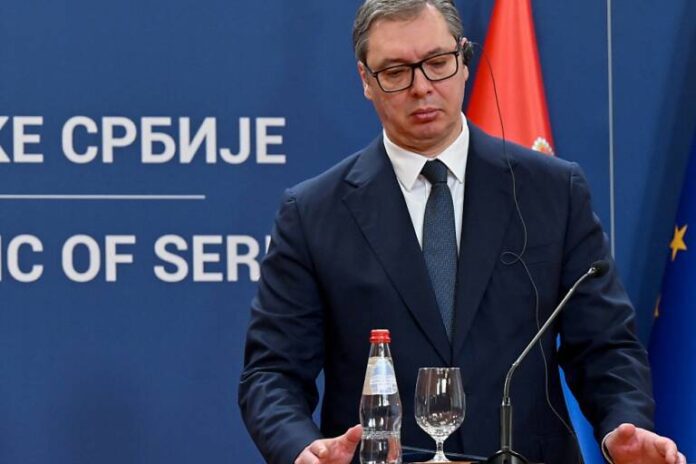In a significant move, Serbian President Aleksandar Vučić has announced his intention to propose the reintroduction of the death penalty in Serbia to the new government. This announcement was made against the backdrop of a tragic case involving the disappearance of a two-year-old girl, sparking national outrage and bringing the issue of capital punishment back into the Serbian public discourse.
Vučić’s call for the reinstatement of the death penalty comes after a period of heightened crime that has left the nation reeling. The immediate cause for this declaration was the arrest of two men who admitted to causing the death of the young girl in a traffic accident. Subsequently, two close relatives of one of the suspects were also arrested, with one, a 40-year-old man, dying in custody overnight. The cause of death was determined by the attending physician to be natural, although the prosecution has ordered an autopsy to further investigate, according to reports by TV station N1.
This is not the first time President Vučić has advocated for the death penalty. He previously supported its reinstatement last year following two massacres in Belgrade and Mladenovac, which resulted in the deaths of 19 people. However, at that time, he was informed by the government that reinstating capital punishment was not feasible. The death penalty was abolished in Serbia in 2002, marking a significant step in the country’s human rights evolution.
President Vučić, known for often exceeding his modest official powers, appears to be leveraging this tragic incident to reignite a controversial debate. The designated Prime Minister, Miloš Vučević, considered one of Vučić’s closest associates, is yet to respond to this proposal.
The call for the reintroduction of the death penalty raises significant ethical, legal, and political questions. It reflects a broader global debate on the effectiveness and morality of capital punishment. Proponents argue that it serves as a deterrent to serious crimes, while opponents view it as a violation of human rights, emphasizing the risk of executing innocent people and the lack of evidence supporting its deterrent effect.
Serbia’s consideration of reinstating the death penalty also poses potential challenges to its international relations, particularly with the European Union, which maintains a strong stance against capital punishment as a condition for membership.
As the debate unfolds, it is clear that the reintroduction of the death penalty in Serbia would not only have profound implications for the country’s legal system and international standing but also for the ethical landscape within which Serbian politics operates. The coming months will be critical in determining the direction Serbia takes on this contentious issue, reflecting broader tensions between justice, morality, and political strategy.





